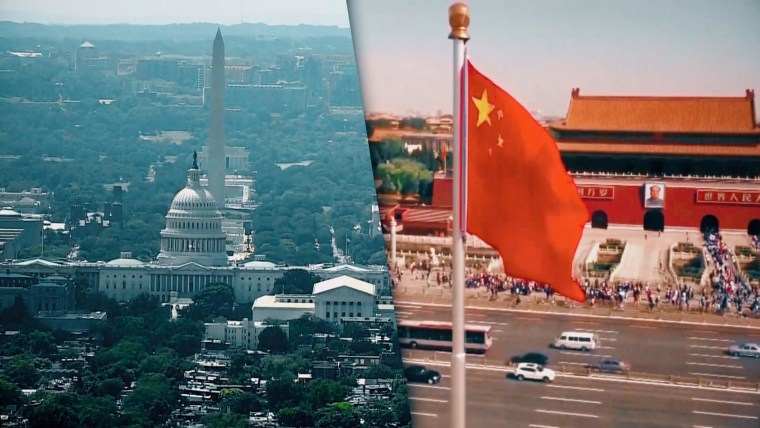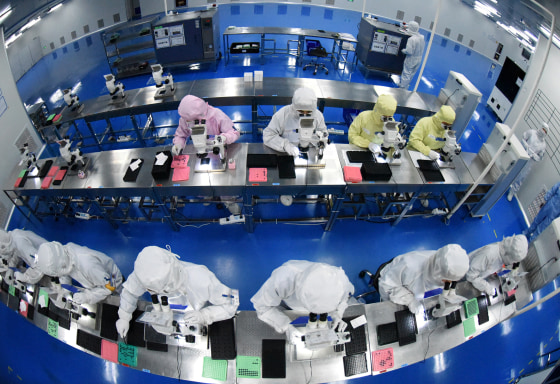President Donald Trump announced Sunday that he is increasing tariffs on hundreds of billons of dollars in Chinese goods and complained trade talks between the two countries are not progressing as fast as he'd like.
"For 10 months, China has been paying Tariffs to the USA of 25% on 50 Billion Dollars of High Tech, and 10% on 200 Billion Dollars of other goods," Trump wrote in a two-part Twitter post. "These payments are partially responsible for our great economic results. The 10% will go up to 25% on Friday. 325 Billions Dollars of additional goods sent to us by China remain untaxed, but will be shortly, at a rate of 25%."
"The Tariffs paid to the USA have had little impact on product cost, mostly borne by China," he continued. "The Trade Deal with China continues, but too slowly, as they attempt to renegotiate. No!"

Trump's announcement comes as Chinese officials arrive in Washington for a late-stage round of talks on a trade agreement this week, and his administration officials have expressed optimism about the negotiations. Last week, White House press secretary Sarah Sanders said the talks "remain focused toward making substantial progress on important structural issues and re-balancing the US-China trade relationship.”
On Friday, Vice President Mike Pence told CNBC the president was hopeful a deal could be struck.
The comments come as China's top trade envoy, Liu He, visits Washington, D.C., this week for continued negotiations.
Last week, industry sources said they believed the talks were in the endgame, and Treasury Secretary Steven Mnuchin had said he hoped that the U.S. negotiating team would soon be able to recommend a deal to Trump or tell him that one could not be reached.
The administration has been insisting on a mechanism to ensure that China follows through on any promises to purchase more American goods. Administration officials have said both sides are expected to launch new enforcement staffs to police the agreement.
Trump had previously delayed the tariff increases earlier in the year, citing productive talks with China.
Trump has used tariffs as a way to pressure foreign nations to acquiesce to his trade demands, although tariffs, which are imposed on products originating in foreign countries and not on the governments of those nations, increase costs for importers of the products and can drive up prices for consumers.


